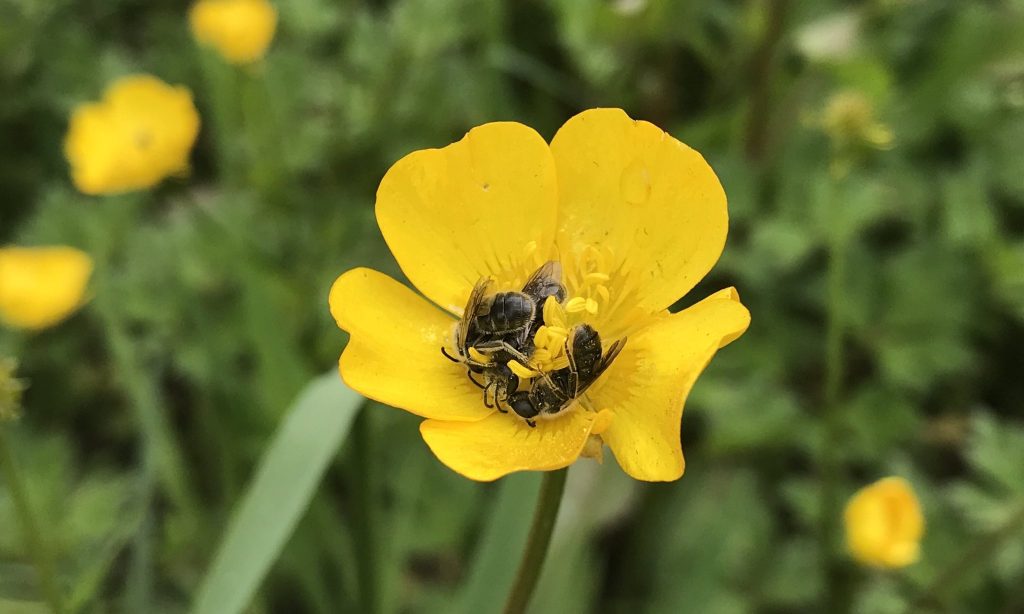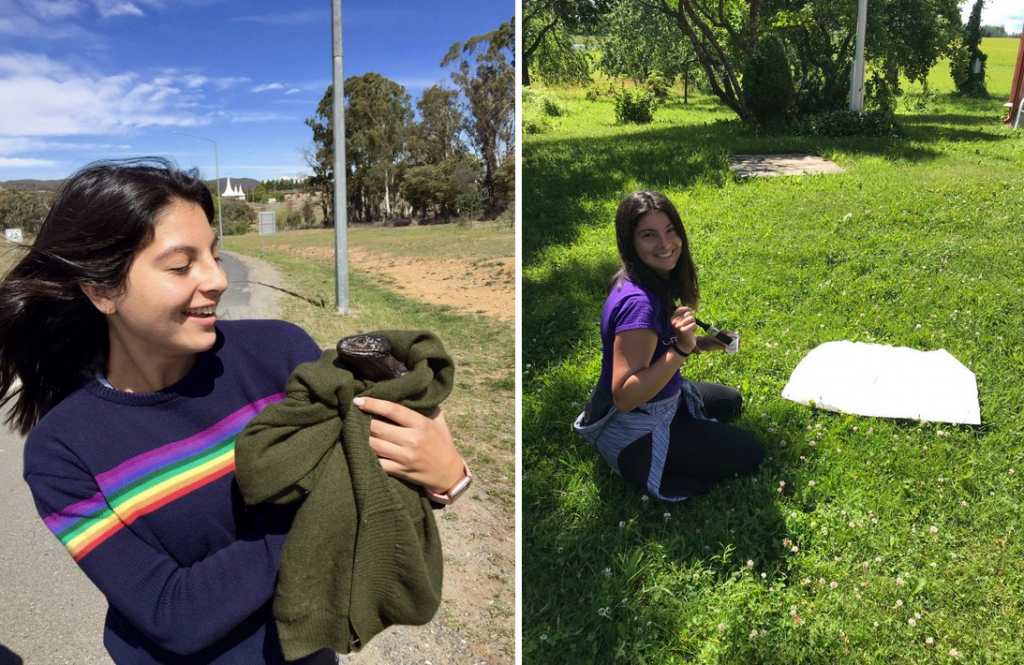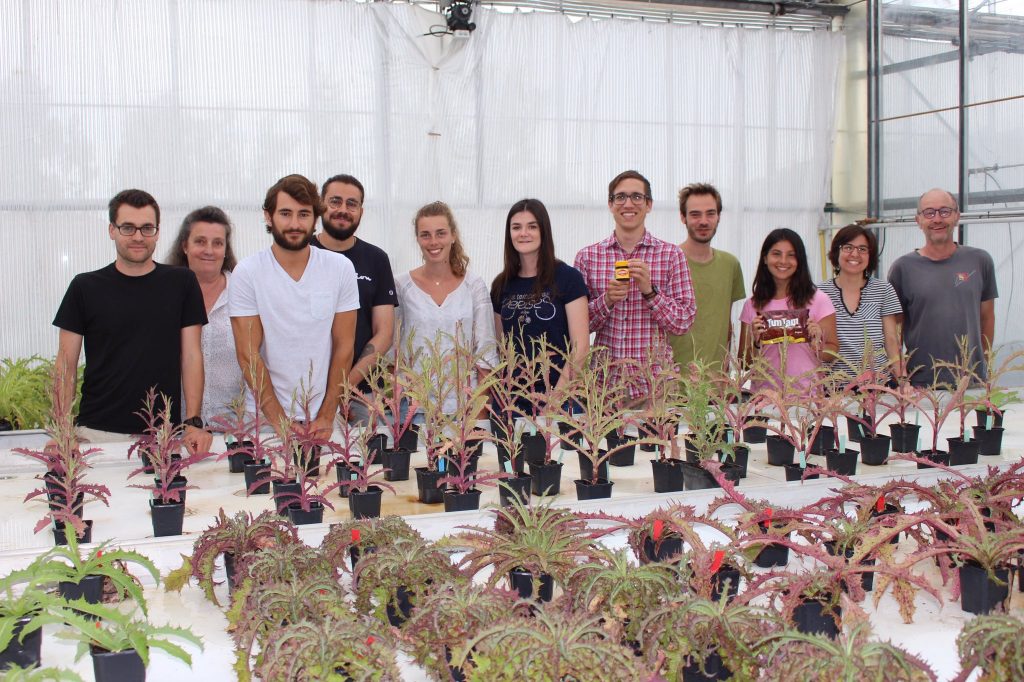Zoe is a third-year PhD student at the UNSW School of Biological, Earth and Environmental Sciences, focusing on invasive plant species. Her research involves a lot of fieldwork in a range of environments, spanning 6 countries and 2 continents. She comes to university excited and motivated every day, and is a fantastic role model for women in STEM.

Zoe’s current work
Zoe’s PhD is investigating the success of introduced plants in Australia and the factors that contribute to their growth and spread throughout the continent. She studies the effect of animals that eat them, insects that colonise them and their pollinators in an effort to understand whether they are similar in Australia compared to their native range in Europe. This work follows the idea of the enemy-release hypothesis – that the plants have left many of their “enemies” (ie. bugs and animals that eat them) behind in Europe and no longer have to spend resources defending themselves or regrowing eaten leaves.

Zoe has travelled around Europe and Australia collecting samples and data for her work. (Pictured left: Saving a shingleback lizard from becoming roadkill in Canberra. Pictured right: Collecting invertebrate samples in Tartu, Estonia.)
Zoe’s university story
Zoe started a bachelor of science degree, but didn’t really hit her stride until second year when the subjects became specialised and she discovered her passion for biology and genetics. Zoe decided to pursue a major and subsequent honours in biology, answering the broad-scale questions like whether possessing heterogametic sex chromosomes led to shorter lifespans. The open-endedness of honours appealed to her, where she was able to apply her genetics interest and biology passion from undergraduate courses combined with novel areas like ecology to solve a big question. Her honours work was later published and received a lot of media attention.

An artist and role model at heart.
When graduating from high school, Zoe decided to pursue science at university, but still likes to do art as a hobby. She particularly likes abstract art, impressionism and cubism – the art that requires interpretation.
Alongside her art hobby, Zoe has a passion for outreach – involving herself in many programs and activities where she can help inspire younger students to pursue STEM.
Teamwork makes the dreamwork!
Zoe’s work involves lots of travel and international field work, which can be a problem when it is to non-English speaking countries. Working through this required support from a team of people in each location, and really highlighted the importance of not being afraid to ask for help, and helping others when you can.

Pictured: Zoe and her colleagues at the CSIRO European Laboratory in Montpellier, France.
Zoe’s advice for students considering STEM
If STEM is something you enjoy, don’t worry about job prospects or career paths, just try it out! As long as you like what you do, you will stay motivated, excited and passionate about wherever it takes you!
Keep up with Zoe by following her Twitter @zoexiro or visiting her website https://zoexiro.com/

